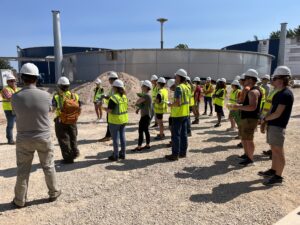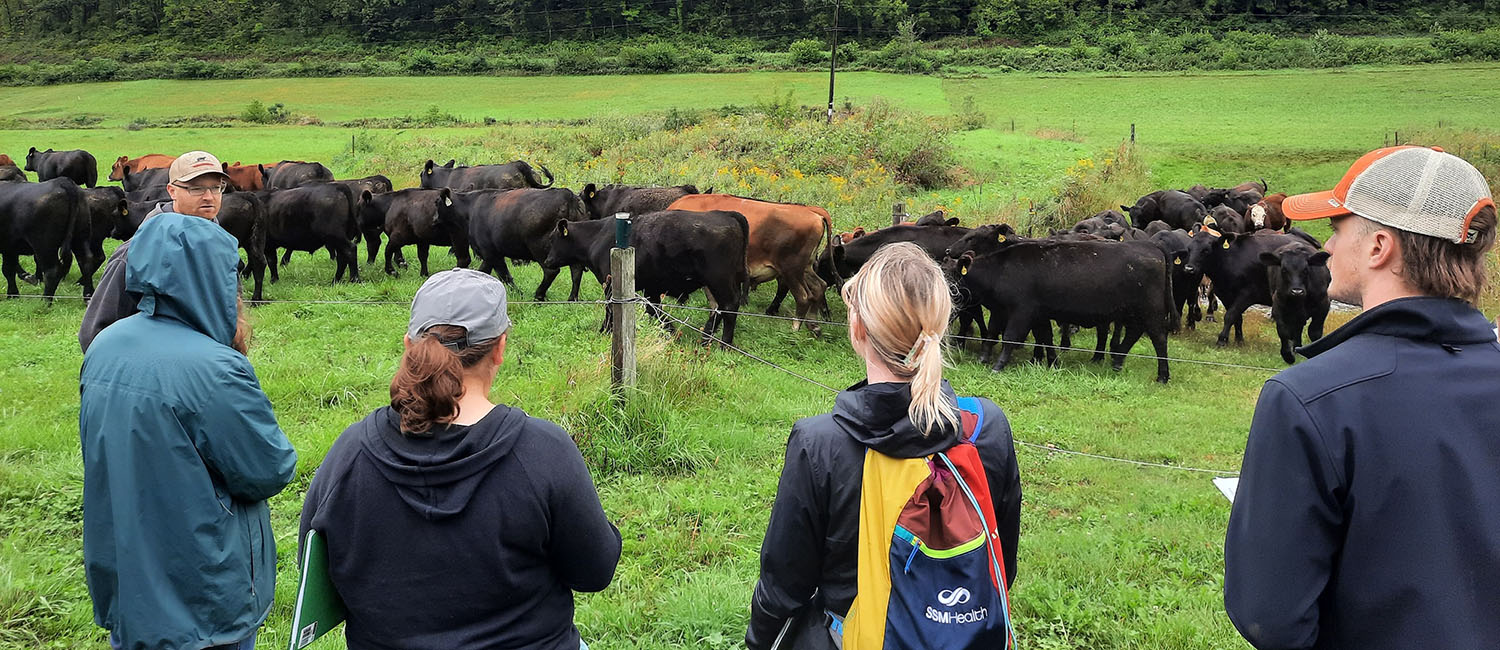Wisconsin’s abundant rivers, lakes and streams helped the state become an agricultural leader. Yet agricultural processes, including irrigation and pesticide use, also greatly impact our state’s water quality and quantity.
One of the biggest challenges facing Wisconsin is determining how to maintain the state’s agricultural prominence while also ensuring plenty of safe water for drinking, recreational use, manufacturing and other uses.
Wisconsin’s diverse geographic areas further complicate the water challenges at the nexus of agriculture and water. Interdisciplinary teams are needed to identify opportunities that improve both agriculture processes and water health.
The Wisconsin Agriculture-Water Nexus Network (WAW2N), established with funding from the Freshwater Collaborative of Wisconsin, is a cross-campus network of water researchers who are developing educational courses that will train students in agriculture-water management.
“We thought it would be good to introduce students to the water management issues across the state so they can be prepared to be employed anywhere in the state,” says Stephan Gunn, assistant professor at UW-Green Bay and lead researcher on the WAW2N project.
In 2022, faculty from UW-Green Bay, UW-Madison, UW-Platteville and UW-Stevens Point developed a pilot three-day field trip course built around regional variations in Wisconsin agriculture. The 21 students who enrolled in the course met with professionals in water and agricultural industries in three areas of the state.
In northeastern Wisconsin, one of the most intensive dairy regions in the United States, students talked with farmers about phosphorus and agricultural runoff treatment and monitoring. In central Wisconsin, an important vegetable-growing region, they learned about irrigation and how it affects groundwater. And in southwest-southcentral Wisconsin, they discussed best practices for grazing along streams as well as processes that remove harmful nutrients from wastewater before it’s released back into urban watersheds.
“Seeing the different soil and water issues across the state gave myself and other future natural resource managers a better feel for how certain issues carry over and differ from region to region,” says Dane Friis, who is majoring in Land Use Management and Planning at UW-Stevens Point.
Friis found the interaction with students and faculty at other UW schools to be beneficial. He particularly enjoyed talking with agronomy majors from UW Platteville, noting that their insight helped him understand what farmers need to grow viable crops while implementing management practices.
With a second round of funding, the WAW2N will expand to include UW-River Falls and UW-Stout. Faculty at the six institutions will offer learning modules that dive into the specific challenges of each of the three regions through an online course. The online course will be open to students on any of the campuses. A one-credit course offered each semester will include a three-day field trip during which students will come together to explore a specific region in Wisconsin and meet farmers and people from organizations working in the area.
Students will be able to take one or more of the courses, giving them a greater understanding of the geographic issues and connections between agriculture and water.
“Wisconsin has very different water quality issues depending on the specific region,” says UW-Madison student Micah Robinson, who participated in the pilot course. “Getting to see various regions gave me a broader understanding of water quality issues in the state, and better prepared me to solve unique water quality issues.”
A new companion course and the three-day field trip will be offered in spring 2023 at UW-Green Bay, UW-Madison, UW-Platteville, UW-River Falls, UW-Stevens Point, UW-Stout. View course descriptions.

